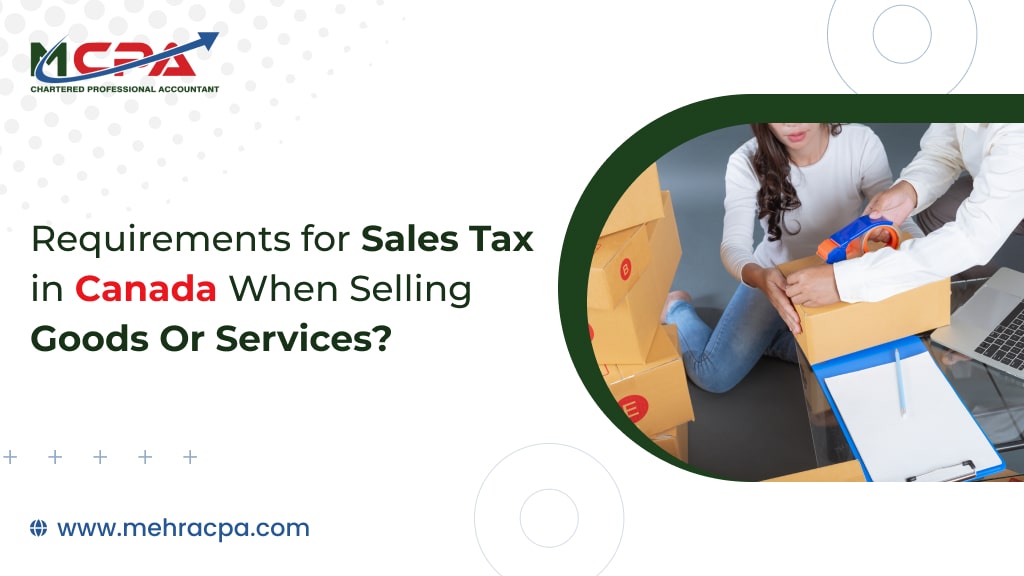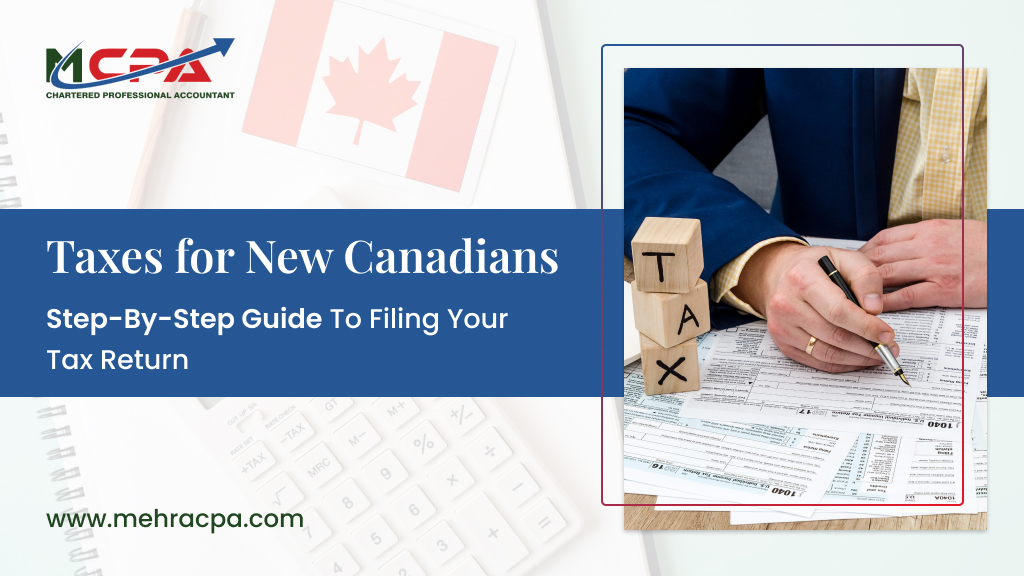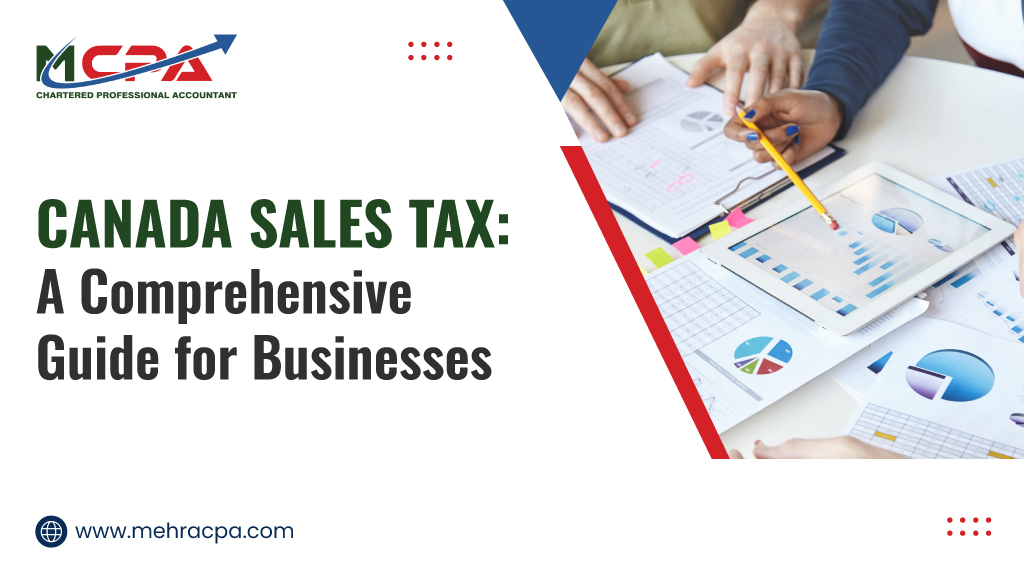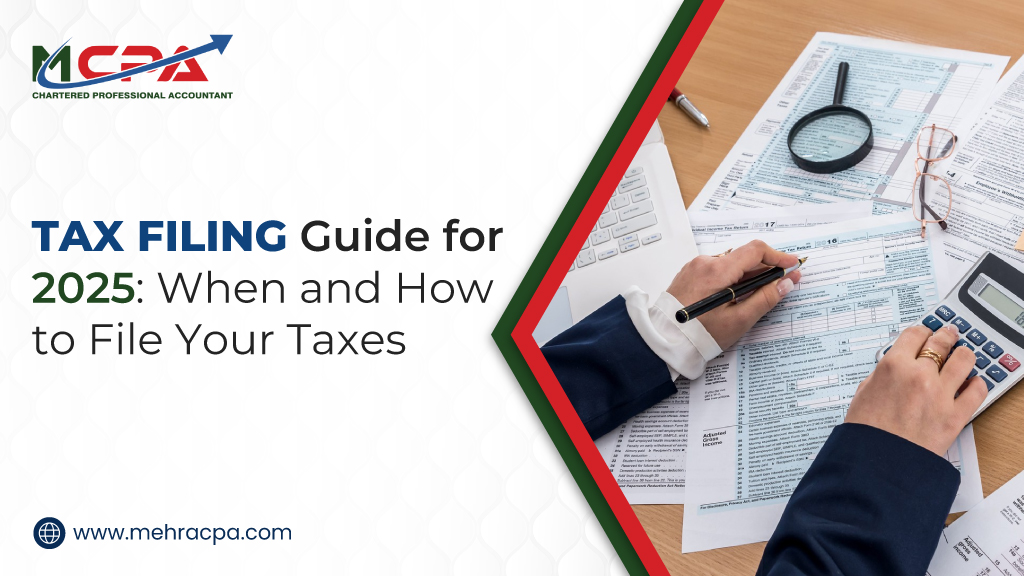
Recent Post
2025 Canadian Tax Deadlines: Everything You Need to Know
Every year, Canadians are required to file their taxes on…
Taxes for New Canadians: Step-by-Step Guide to Filing Your Tax Return
Moving to Canada is an exciting journey filled with new…
Canada Sales Tax: A Comprehensive Guide for Businesses
What is Sales Tax? If you own a business in…
Tax Filing Guide for 2025: When and How to File Your Taxes
Filing taxes can seem like a daunting task, but with…
For someone like you who owns a business in Canada, it is important to grasp the concept of sales tax. It doesn’t matter whether you are just starting out or expanding; finding out more about the tax regulations on selling is an important step towards avoiding penalties and making sales easier with customers. Sales tax can be tough. Each province has its own rules and rates. This guide simplifies it for you.
What is Sales Tax in Canada?
Here are the three kinds of sales tax in Canada that are important for you to grasp as follows:
- Goods and Services Tax (GST): This tax is a federal one that applies to most commodities and services provided across the country. The percentage value for GST stands at 5%.
- Provincial Sales Tax (PST): This implies some provinces impose their own levies which are usually above GST. Each of them has different PST rates.
- Harmonized Sales Tax (HST): This indicates a situation when GST and PST have been clamoured into one rate. HST is enforced within select provinces.
The chargeable tax to be asked depends on the location of your business establishment plus the place from where your clients make purchases. Let us examine the way it operates more closely.
How Sales Tax Works Across Canada
Canada’s sales tax is not uniform across the country. The rate and type of tax depend on the province or territory where the sale occurs. Here’s a province-by-province breakdown:
1. Provinces with GST and PST
These provinces charge both GST (5%) and a separate PST.
- British Columbia: PST is 7%, so the total combined tax is 12%.
- Saskatchewan: PST is 6%, making the total 11%.
- Manitoba: PST is 7%, bringing the total to 12%.
- Quebec: Quebec has its own version of sales tax, known as the Quebec Sales Tax (QST), at a rate of 9.975%. Combined with GST, the total tax is 14.975%.
2. Provinces with HST
In some provinces, GST and PST are combined into a single Harmonized Sales Tax (HST).
- Ontario: HST is 13%.
- Nova Scotia: HST is 15%.
- New Brunswick: HST is 15%.
- Newfoundland and Labrador: HST is 15%.
- Prince Edward Island: HST is 15%.
3. Provinces with GST Only
Some provinces do not have PST or HST and only charge GST.
- Alberta: GST is 5%.
- Northwest Territories: GST is 5%.
- Nunavut: GST is 5%.
- Yukon: GST is 5%.
When Do You Need to Register for Sales Tax?
Depending on the business, selling above the threshold amount means that all businesses have to register for sales tax. You must do the following:
- Small Suppliers: If an organization earns less than $30,000 in a year from taxable goods or services, it is classified as a small supplier. Therefore you need not be GST/HST registered but exceeding such limits makes it a necessity.
- Non-Residents: If you are a non-resident who trades in Canada, GST/HST registration may be required. This applies when your company has a substantial presence or if products are sold annually for over $30,000.
- Voluntary Registration: Even if you do not reach the $30,000 threshold limit, there are ways to still go ahead and register. With this move, one can easily get back input tax credits on any business cost incurred.
How to Register for Sales Tax in Canada
For a hassle-free online registration for sales tax, visit the CRA’s website. You can also register by mail through the Canada Revenue Agency (CRA). Finally, you can register by phone. To begin, find out how to do it:
- Online: Through My Business Account from CRA, an online GST/HST registration can be made. The online registration is easy and helps you through the steps.
- By Mail: When choosing to register by mail, you fill in Form RC1 “Request for a Business Number (BN)” and deliver it to your local tax services office.
- By Phone: You can always call the CRA’s business inquiries line and they will help you register over the phone.
Registration will provide you with a Business Number (BN), which will be needed for tax filing and correspondence with the CRA.
When Should You Charge Sales Tax?
Once you’ve registered, it’s essential to know when and to whom you should charge sales tax. In general:
- Taxable Goods and Services: Most goods and services sold in Canada are subject to GST/HST. This includes tangible products like electronics and clothing, as well as services such as repairs and consulting.
- Exemptions: Some goods and services are exempt from GST/HST. Common exemptions include financial services, medical services, residential rents, and certain educational courses. Always double-check the CRA’s list of exempt and zero-rated supplies.
- Interprovincial Sales: If you sell goods or services to customers in other provinces, you must charge the correct sales tax based on the province where the customer is located.
For example:
- If you’re selling a product from Ontario to a customer in British Columbia, you’ll need to charge GST (5%) and PST (7%), for a total of 12%.
- If you’re selling a product to someone in Alberta, you only need to charge GST (5%).
Sales Tax on Digital Goods and Services
With the rise of e-commerce and digital goods, knowing how to handle sales tax on digital products is vital. As of July 2021, non-resident vendors (including foreign companies) selling digital products or services to Canadian customers must register for and charge GST/HST. This applies to digital goods like e-books, online courses, and streaming services.
The tax rate you charge depends on the province where the customer resides. For example:
- In Ontario, you’d charge 13% HST for an e-book sold to a customer.
- In Alberta, you’d charge 5% GST for the same e-book.
How to Calculate Sales Tax
Calculating sales tax for your transactions is straightforward. Simply multiply the price of your goods or services by the applicable sales tax rate. For example:
- In Ontario: If you’re selling a product for $100, you’d charge 13% HST, meaning the customer pays $113 in total.
- In British Columbia: For the same $100 product, you’d charge 5% GST and 7% PST, so the customer pays $112 in total.
It’s also important to display the sales tax separately on invoices and receipts, making it clear to customers how much they are being charged.
Filing and Remitting Sales Tax
Once you’ve collected sales tax, you’ll need to remit it to the CRA. Here’s a basic rundown of how this works:
- Filing Frequency: The CRA will assign you a filing frequency (monthly, quarterly, or annually) based on your business’s revenue. Larger businesses typically file more frequently.
- Input Tax Credits (ITCs): You can claim input tax credits to recover the GST/HST paid on business expenses like office supplies, rent, and equipment. This reduces the total tax you owe.
- Deadlines: Filing deadlines vary based on your assigned filing frequency. Be sure to stay on top of these dates to avoid penalties or interest charges.
- Online Filing: The simplest way to file your sales tax return is through the CRA’s My Business Account. It’s a secure and convenient platform that allows you to file returns, claim input tax credits, and remit payments.
Penalties for Non-Compliance
Failing to comply with sales tax rules can result in severe penalties and interest charges. Here are some common scenarios where businesses might face penalties:
- Late Filing: If you miss the filing deadline, you may be charged a late-filing penalty, which increases the longer the return is overdue.
- Failure to Collect or Remit: If you fail to charge sales tax or remit it to the CRA, you could face fines and interest on the outstanding amounts.
- Underreporting: If the CRA discovers you’ve underreported your sales or tax amounts, you could be subject to additional penalties and a detailed audit.
Conclusion
Understanding and adhering to the sales tax requirements in Canada is crucial for any business selling goods or services. Whether you’re dealing with GST, PST, or HST, staying compliant will ensure you avoid penalties and maintain smooth operations.
Remember, the specifics can vary depending on where you’re located and where your customers are purchasing from, so it’s important to get familiar with the rules in each province. If you’re unsure about how to navigate sales tax or need help with registration, filing, or compliance, working with a knowledgeable accountant, like the professionals at Mehra CPA, can make all the difference. They can guide you through the process and help ensure that your business stays on the right side of the law.
By being diligent and informed, you can focus on growing your business while staying compliant with Canada’s sales tax regulations.




